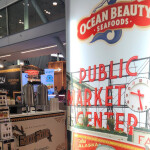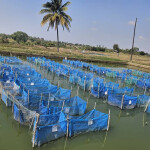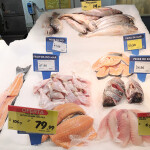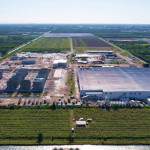An international panel of academics, environmental activist groups and corporate leaders has drafted a new report containing guidelines for protecting both the environment and the financial health of the fishing industry worldwide.
The blue-ribbon panel created the report for the Global Partnership for Oceans (GPO), a part-public, part-private partnership started by the World Bank in 2012 to support both the worldwide ocean environment and the global fishing industry.
The guidelines, according to James Anderson, oceans, fisheries and aquaculture advisor for the World Bank, will help shape future large-scale fisheries improvement projects worth millions of U.S. dollars.
Anderson, who helped organize the panel, said keeping the oceans healthy benefits both environmental activists who want to protect them and seafood companies who rely on them for their livelihoods.
“Everybody really cares about the oceans,” Anderson told SeafoodSource. “That was really a binding thing that brought everybody together.”
According to the report, “it is critical that the GPO establish and follow a clear set of principles and criteria for making strategic investments in ocean-related projects and a consistent approach for measuring progress.”
The criteria, according to the report, are connected to five principles:
• Sustainable livelihoods, social equity and food security
• Healthy oceans and sustainable use of marine and coastal resources
• Effective governance systems
• Long-term viability
• Capacity building and innovation
How the GPO implements these principles will guide millions of dollars in future investment. According to its website, the GPO is made up of more than 140 partners, which include governments, major seafood industry companies, private foundations, NGOs and other groups. According to Anderson, the GPO administers donations both internally from its own partners and from external sources, all geared toward projects to improve environmentally and financially sustainable fishing practices. To date, Anderson said the GPO has already raised at least USD 10 million (EUR 7.4 million), and is expected to raise more than USD 50 million (EUR 37 million) within the next few years.
While Anderson stressed that the World Bank does not run the GPO, it is one of the GPO’s partners, and thus the GPO will likely help administer World Bank loans for similar fishery projects to member nations. Over the past 10 years, Anderson said the World Bank has already loaned more than USD 800 million (EUR 591 million) to member nations for these purposes, and in the next few years, that figure is expected to top USD 1 billion (EUR 739 million).
The principles in the panel’s report, according to the GPO, will play a major part in how those projects are funded in the future.
“Getting to healthy oceans is a global challenge that needs the concentrated effort of big and small business, government and science,” said Ove Hoegh-Guldberg, the panel’s chair. “Though they brought very different world views, everyone on this panel agreed that we can’t keep going with business-as-usual and all parts of society must be part of the solution.”
Among the panelists was Chris Lischewski, president and CEO of Bumble Bee Foods, who said in a statement that he supported the effort to include a cross-section of corporate and NGO leaders.
“Being a member of the Blue Ribbon Panel has been a rewarding opportunity to collaborate with key players and thought leaders in ocean sustainability,” Lischewski said. “The process reinforces that improving ocean health is a complex process that requires participation and interaction across a broad sphere of communities, industries and governments.”





